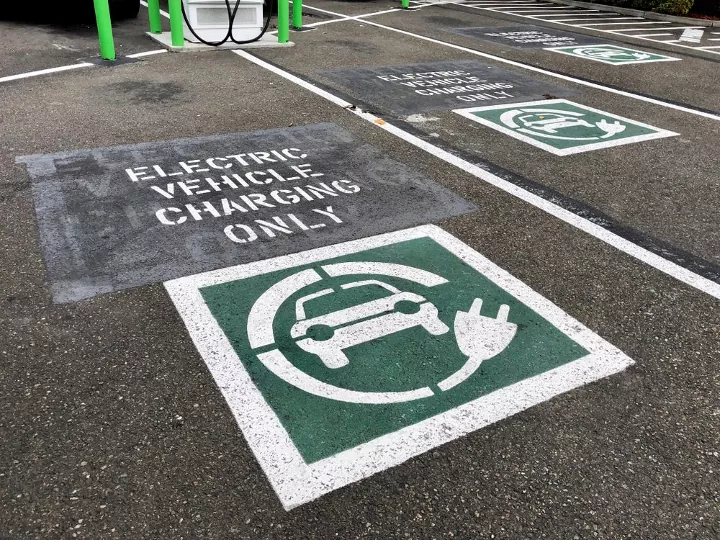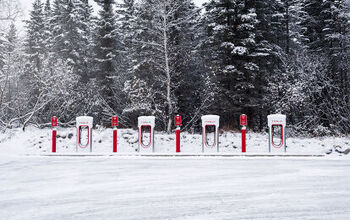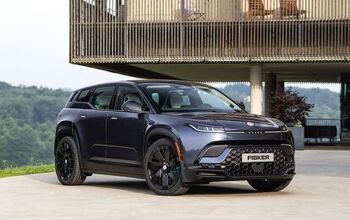Gas War: 25 States Sue EPA Over Updated Emissions Regulations

Over two dozen states have joined forces to sue the Environmental Protection Agency (EPA) over proposed vehicle emissions regulations put forward by the Biden administration in March. Grievances include claims that the executive branch is unconstitutionally manipulating the marketplace by setting requirements higher than manufacturers can adhere to, effectively mandating sales of electric vehicles that have been broadly unpopular in the United States. Additionally, the states have alleged these changes would hurt domestic employment while simultaneously raising the average price of vehicles.
If those claims sound familiar, it’s effectively what the Trump administration said when it attempted to roll back Obama-era emission requirements and revoke the California fueling waiver that basically allowed the state to position itself as the de facto federal standard — something we’ve covered several times in the past. Back then, it was a coalition of Blue states suing the Trump administration when California led the charge.
This time, it’s a group of Republican attorneys general with Kentucky and West Virginia at the helm coming after the Biden administration.
West Virginia Attorney General Patrick Morrisey and Kentucky Attorney General Russell Coleman, filed the lawsuit in the U.S. Court of Appeals for the District of Columbia Circuit last week. Coleman is on record as suggesting the decision would further harm the American economy, adding there is almost zero interest in all-electric vehicles within his state. But both have stated that they’re concerned about the ramifications for traditional supply chains and the possibility that the changes would negatively impact the U.S. workforce, noting that most aspects of battery production presently take place outside the country. Swelling vehicle prices was another issue.
They’ve been joined by Alabama, Alaska, Arkansas, Florida, Georgia, Idaho, Indiana, Iowa, Kansas, Louisiana, Mississippi, Missouri, Montana, Nebraska, New Hampshire, North Dakota, Ohio, Oklahoma, South Carolina, South Dakota, Utah, Virginia and Wyoming in the suit.
However, according to Reuters, the case is being handled by the same court that previously torpedoed an earlier attempt where Republicans sought to to revoke California's authority to set stricter emissions standards than those required by the EPA on the grounds that it was intentionally trying to force the automotive industry to adhere to its regulatory policies rather than federal standards.
Interestingly, California publicly made deals with numerous automakers that required them to do exactly that if they wanted to continue selling products within its borders. The claims made against the state and the California Air Resources Board seem largely irrefutable. But the court sided with the Golden State, which is now seeing another waiver that would allow it to ban the sale of combustion-powered automobiles by 2035.
“Today the court sided with common sense and public health against the fossil fuel industry and Republican-led states. This ruling reaffirms California’s longstanding right to address pollution from cars and trucks, work started by Governor Ronald Reagan and codified by President Richard Nixon,” California Governor Gavin Newsom said at the time.
“The clean vehicle transition is already here — it’s where the industry is going, the major automakers support our standards, and California is hitting our goals years ahead of schedule. We won’t stop fighting to protect our communities from pollution and the climate crisis.”
Critics have complained that the updated emission targets floated by the EPA have real consequences for manufacturers and would likewise effectively force the whole country to transition to EVs. Meanwhile, Donald Trump has said he would resume pressing for deregulation if he wins the 2024 presidential election.
From Reuters:
Republican state officials have said the rules amount to an attempt by the administration to transform the American passenger vehicle market improperly through strict rules that make it difficult for manufacturers to not go electric.
"The Biden administration is willing to sacrifice the American auto industry and its workers in service of its radical green agenda. We just aren't buying it," Coleman said.
West Virginia Attorney General Patrick Morrisey called the rules "legally flawed and unrealistic, to say the least."
The EPA declined to comment.
The regulations are among the most significant environmental rules implemented under Biden, who has made tackling climate change a key pillar of his presidency. The EPA has forecast that between 35 [percent] and 56 [percent] of new vehicles sold between 2030 and 2032 would be electric under the rules — a range that reflected the flexibility the agency has said automakers have to pursue different pollution-cutting technologies.
Republicans are suggesting that this is not only untenable with the current take-rate of EVs, but that the move exceeds the EPA’s authority and will worsen the American economy. Assertions have been made that the executive branch has leveraged the Clean Air Act to illegally encourage regulators to “restructure the automobile industry” from top to bottom. Total government integration into any industry is technically a form of totalitarianism in the eyes of the law. Historically, the concern was that undermining the free market would lead to economic catastrophe and that political leaders had no business managing the private businesses. However, the Clean Air Act and decades of increased regulatory involvement has kind of muddied the waters. What was once considered taboo has arguably become fairly commonplace, or at least tolerated in plenty of federal courtrooms.
EPA chief Michael Regan had previously said the new rules absolutely do not create any mandate for manufacturers to adopt electric vehicles. However, some of the manufacturers have stated the opposite (claiming they couldn't possibly comply without widespread electrification) and we’ve already seen the way in which government regulations can change the trajectory of an entire industry. For example, one of the reasons trucks and SUVs have become so massive in recent years is so that the industry can exploit regulatory loopholes and circumvent fines. This likewise overlaps with increased vehicle pricing as the government has gradually instituted more required safety equipment, some of which is quite expensive.
Reuters noted that the above hasn’t remained isolated to the automotive sector. Republican states have also repeatedly challenged the U.S. Securities and Exchange Commission’s new corporate climate rules that require businesses to share any “climate-related risks.” The concern here is that the rule is being applied so broadly that effectively every decision they make would apply. We’ve already seen the Energy Department pause approvals for liquefied natural gas export facilities while the EPA has added pressure by instituting increasingly strict pollution standards. The criticism here is that the rules are being used to allow the government to pick winners and losers, with the climate angle allegedly being a convenient way for federal agencies to exert control.
It appears we have come full circle, at least in terms of lawsuits. Five years ago, it was the Democrats joining forces to pressure the Trump administration against rolling back stringent emissions regulations. Fast forward to 2021, and the Biden administration undid any progress Trump had made on that front via executive order. Now, we have Republicans joining forces to stymie even stricter regulatory measures while Trump has vowed to take executive action should he win in November of 2024.
[Image: ZikG/Shutterstock]
Become a TTAC insider. Get the latest news, features, TTAC takes, and everything else that gets to the truth about cars first by subscribing to our newsletter.

A staunch consumer advocate tracking industry trends and regulation. Before joining TTAC, Matt spent a decade working for marketing and research firms based in NYC. Clients included several of the world’s largest automakers, global tire brands, and aftermarket part suppliers. Dissatisfied with the corporate world and resentful of having to wear suits everyday, he pivoted to writing about cars. Since then, that man has become an ardent supporter of the right-to-repair movement, been interviewed on the auto industry by national radio broadcasts, driven more rental cars than anyone ever should, participated in amateur rallying events, and received the requisite minimum training as sanctioned by the SCCA. Handy with a wrench, Matt grew up surrounded by Detroit auto workers and managed to get a pizza delivery job before he was legally eligible. He later found himself driving box trucks through Manhattan, guaranteeing future sympathy for actual truckers. He continues to conduct research pertaining to the automotive sector as an independent contractor and has since moved back to his native Michigan, closer to where the cars are born. A contrarian, Matt claims to prefer understeer — stating that front and all-wheel drive vehicles cater best to his driving style.
More by Matt Posky
Latest Car Reviews
Read moreLatest Product Reviews
Read moreRecent Comments
- Jan Smith Did you hit up a level 2 charger @ ChargePoint? Please explain that whole paragraph because to an uneducated person looking to buy an EV that insert about EV charging would throw them off. 😄
- FreedMike Hint to Nissan: if you want something that will stand out in the market and be reasonably priced, how about a PHEV Frontier?
- FreedMike Apple Music through Carplay or Bluetooth. VWs also have a neat feature that allows you to scroll up and down through all available radio stations.
- FreedMike "Forced Neutral" - is that like the Sudetenland in 1938? Seriously, Ford...WTF.
- Wjtinfwb I foresee HUGE rebates on this. The "quasi-Safari" look on 911s is one think on a 150k plaything. It's another when slapped on a 40k EV with a 20k premium.

































Comments
Join the conversation
4 Keys to a Safe, Modern, Prosperous Society
1 Cheap Energy
2 Meritocracy. The best person gets the job. Regardless.
3 Free Speech. Fair and strong press.
4 Law and Order. Do a crime. Get punished.
One large group is damaging the above 4. The other party holds them as key. You are Iran or Zimbabwe without them.
Poor Redapple won't be sitting down for a while after opening that can of Whiparse